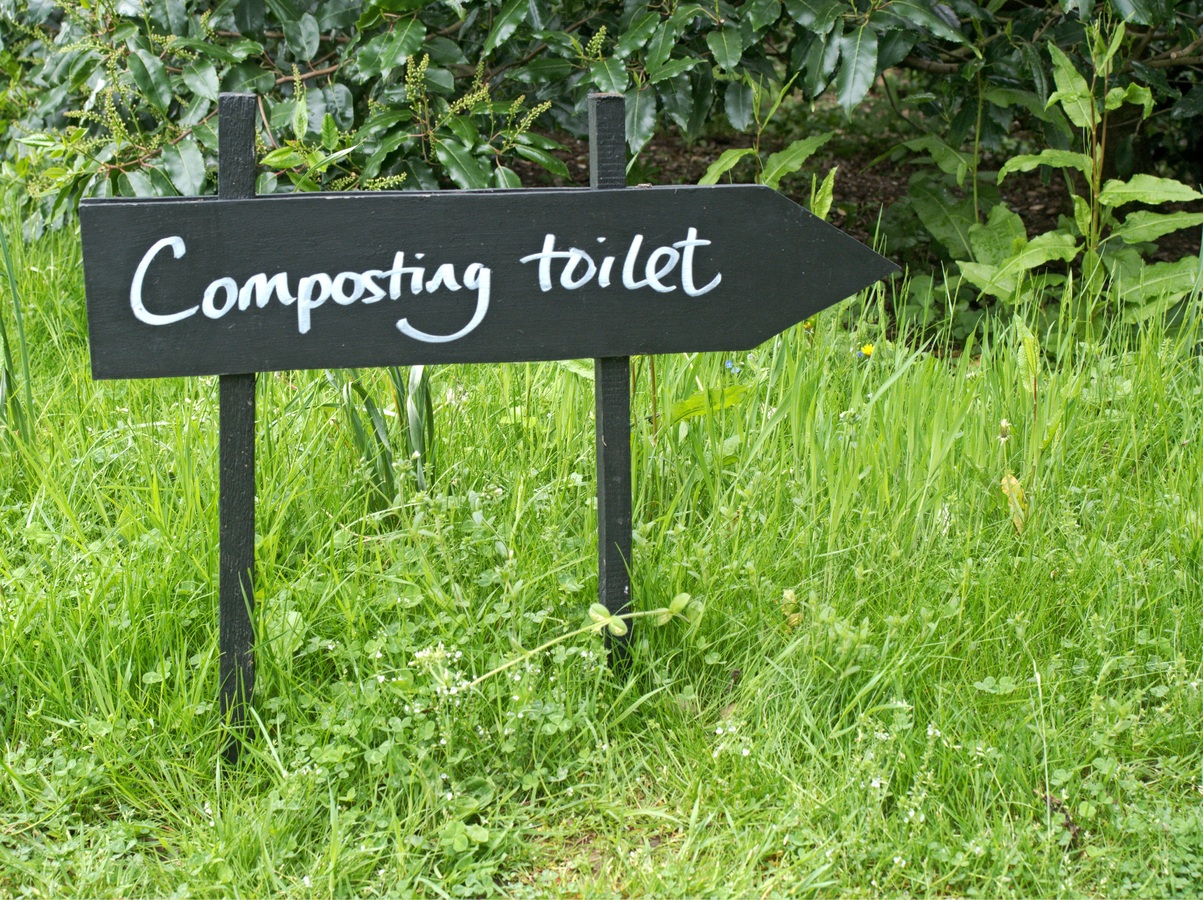Composting toilets have a slightly more pungent odor than other types of indoor facilities. Consider a dry composting toilet if you want to avoid the smell entirely.
Composting toilets recycle human waste while eliminating odors through a decomposing and evaporation process.
They use far less water than traditional toilets and are thus more environmentally friendly. They also don’t require electricity or solar panels, making them ideal for off-grid living.
The initial installation cost can be way above the average budget, but the benefits outweigh the drawbacks significantly.
Table of Contents
How Bad do Composting Toilets Smell?
In some cases, they may produce a distinct smell, but it is not offensive.
You see, the unsanitary conditions in which liquid waste drains directly onto plants or your floor can cause contamination and a bad smell.
In most installations, experts place the septic tank not very far from the ground, making it easier for poop smell to become more evident. Additionally, the lengthy period and procedure it takes for human waste to convert to a safe soil amendment can emit an awful smell.
In such a scenario, composting toilets can be hazardous to one’s health and cost more to install and maintain.
So, do these hindrances deter you from installing a composting toilet? If you have the space and don’t mind the additional costs and maintenance, go for it.
Can You Smell a Composting Toilet from Outside?
You can only smell a composting toilet from outside if the unit is not well maintained.
During the composting process, there is usually an odor from the wastewater, which is initially more acidic than typical sewage discharge and has lower pH levels than fresh water.
Above all, wet composting toilets stink a lot worse than dry ones. After all, the wastewater is anaerobic (it lacks oxygen), and the decomposition process produces a large amount of volatile organic compounds (VOCs).
Consider a dry composting alternative, such as Nature’s head composting toilet, if you want to avoid the smell entirely. This urine-diverting toilet is a brilliant idea far superior to any regular toilet.
How to Contain Composting Toilet Odors
Quick odor solutions include:
1. Add Sawdust or Wood Shavings
Carbon-rich materials, such as sawdust, wood shavings, or peat moss, enable the septic system to break solid waste into usable fertilizer faster. The main benefit is that these bulking agents also help mask the bad smell.
They also decompose into a humus-like substance, less offensive than fresh poop.
If you’re on a tight budget, pine shavings are a less expensive alternative that produces nearly identical results.
2. Maintain the Right Moisture Level
A wet compost pile may not decompose properly due to a lack of oxygen. Inadequate moisture, on the other hand, can also interfere with the decomposition process.
When this happens, a urine diverting toilet is the best solution for re-routing the liquid waste and preventing the unit from becoming excessively wet.
What’s more, Install heaters to accelerate the evaporation of urine from the composting chamber.
3. Pour Coffee Grounds
While bulking material aerates the composting toilet system, some inventive homeowners use coffee grounds to maintain a constant fresh toilet odor. Remember that coffee grounds contain a lot of nitrogen and can easily overheat.
The effect can potentially eliminate insects but can also impinge on beneficial microbes. Adding more dry materials to the unit can reverse the situation.
Do Composting Toilets Attract Insects or Pests?
Yes, it can happen.
Preventing crawling and flying insects from entering your unit may be easier than dealing with a full-blown infestation.
Start by ensuring that insects in the vicinity do not lay eggs and hatch in your toilet.
A layer of wood shavings on top of the compost pile is an excellent idea. Diatomaceous earth also helps eliminate the possibility of insect invasion.
How to Clean a Composting Toilet?
A properly functioning composting toilet may necessitate little or no professional maintenance and cleaning.
You can DIY by inspecting the unit monthly and only use compostable materials like toilet paper. Avoid throwing materials like tampons, wipes, and diapers that take ages to decompose.
More importantly, keep the toilet clean using quality bowl cleaners. Bleach and other harsh chemicals can easily kill the beneficial microbes that break down waste.
Buy vetted cleaning agents, especially those with enzymes that aid decomposition.

